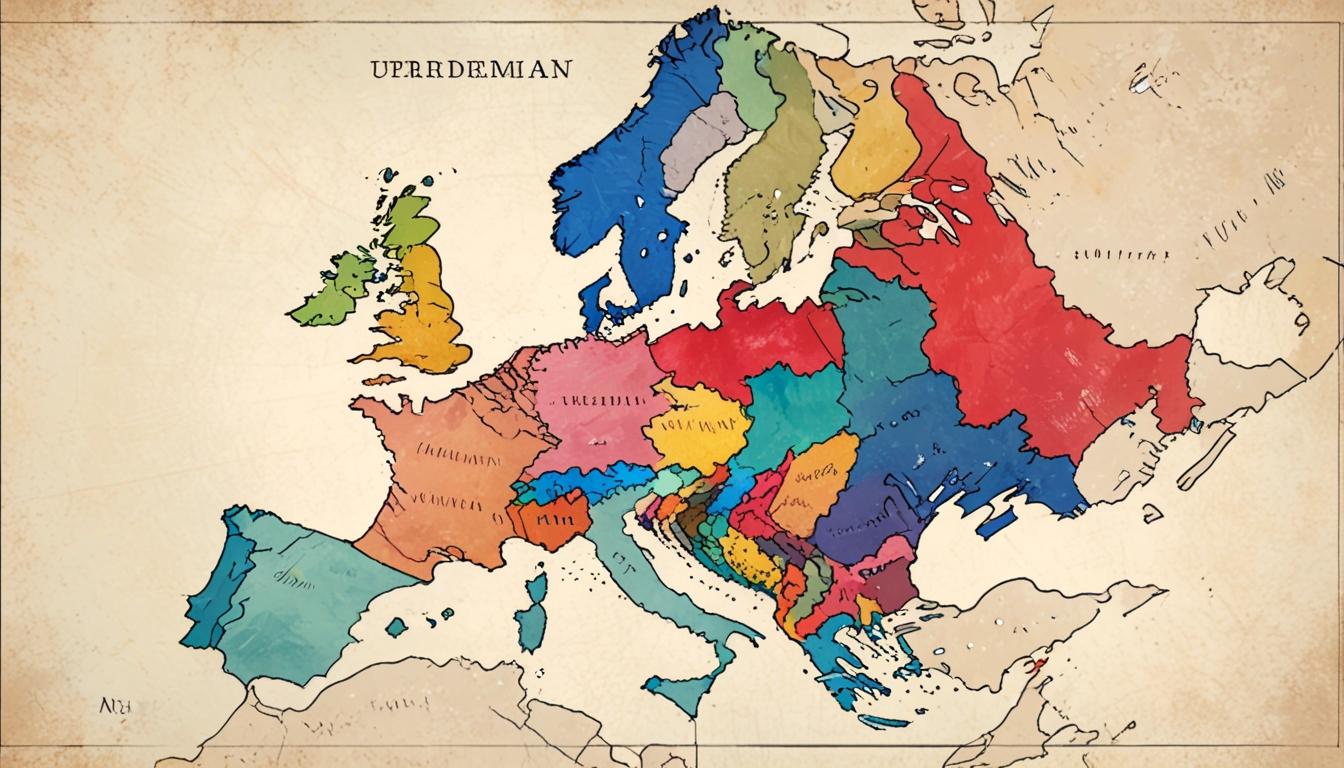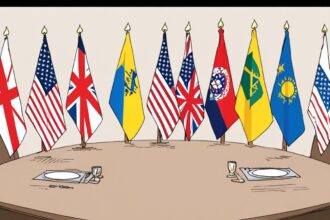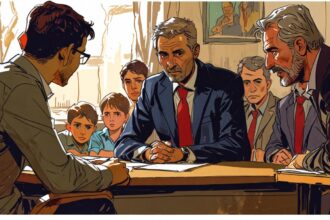Following the recent German elections, the country grapples with coalition government formation and vital international relations amid a shifting political landscape.
In the wake of the recent German elections, where the conservative leader’s party managed a narrow victory with less than 30 percent of the vote, the country now faces the daunting challenge of forming a coalition government. This political upheaval comes at a time when transatlantic relations are in disarray, particularly following the re-election of U.S. President Donald Trump, whose assertive approach is reshaping international dynamics and forcing a necessary reconsideration of Europe’s role on the global stage.
The political landscape in Germany is shifting rapidly as the nation braces for its elections on 23 February. The incoming government is expected to confront several pressing issues, including defence policy, migration, the economy, international security, and climate initiatives. Marc Weissgerber of the think tank E3G highlights the challenges posed by a growing number of right-wing governments in Europe and the political turmoil in member states, underlining the urgent need for strong leadership from Germany to orchestrate a cohesive European foreign affairs strategy.
Moreover, the U.S. administration’s recent decisions to sideline both Ukraine and the EU from crucial negotiations with Russia regarding peace have raised serious alarms about European security. Defence Secretary Pete Hegseth has signalled a retreat from the longstanding American role as the “primary guarantor” of European safety—a position it has historically maintained. JD Vance, the U.S. Vice President, has gone so far as to claim that Europe is stifling free speech, a controversial remark that prompted German Chancellor Olaf Scholz to emphasize democracy’s vulnerability to external meddling in his address at the Munich Security Conference.
Researcher Jana Puglierin voiced her deep concerns about Europe’s lack of preparedness for these sweeping changes, asserting, “It is a scandal how unprepared we are in Europe for what’s happening.” This sentiment reflects a broader unease among European leaders regarding their capacity to effectively respond to an evolving geopolitical landscape. Rafael Loss, Puglierin’s colleague, advocates for a serious reconsideration of Germany’s foreign policy, urging a redefinition of the country’s role within the EU and its relationship with transatlantic allies.
Notably, recent surveys indicate a marked shift among Europeans regarding the U.S.—less than a majority now perceive it as an ally sharing common values. Instead, many view the U.S. as a necessary but transactional partner. As Europe navigates this uncertain terrain, analysts like Brussels-based journalist Dave Keating criticise the sluggish and ineffective responses from European leaders, who have habitually sidestepped making the difficult decisions essential for bolstering European sovereignty.
With the CDU/CSU coalition leading in electoral polls ahead of the elections, Friedrich Merz is positioned to potentially steer the next government. His rhetoric has notably morphed from appeasement towards the U.S. during Trump’s inauguration to admonitions of a potential “break in transatlantic relations,” advocating for a robust European stance to grapple with this dramatically altered political environment.
Nevertheless, the incoming government will undoubtedly confront significant tensions as it tries to recalibrate relationships with key EU partners while aligning national interests with broader European aims. This delicate balancing act will likely become further complicated by disputes over financial commitments towards defence and energy amidst ongoing economic pressures. The discussions circulating among EU countries about altering debt rules to allow for increased defence spending may challenge Germany’s traditionally conservative approach to fiscal discipline.
In addition, the CDU’s intention to reassess commitments to the European Green Deal has sparked scrutiny. While still endorsing the overarching goals, analysts suggest that there is considerable pressure to soften components of the Green Deal viewed as excessively demanding.
As Germany prepares for the forthcoming electoral landscape and potential policy pivots, the challenges posed by domestic affairs and international relations will be pivotal in shaping the country’s leadership role in Europe and beyond. The direction taken by the new government could not only define Germany’s future but also impact the entire continent’s trajectory in a time of unprecedented uncertainty.
Source: Noah Wire Services
- https://en.wikipedia.org/wiki/2021_German_federal_election – This Wikipedia page provides context on the previous German federal election, which is relevant to understanding the current political landscape and challenges in forming a coalition government.
- https://www.youtube.com/watch?v=g-QdYeD4XZA – This YouTube video discusses the recent German elections, where the CDU/CSU is set to return to power, and highlights the political shifts in Germany.
- https://www.bbc.com/news/world-europe-64838446 – Although not directly available in the search results, BBC News typically covers European political events, including German elections and their implications for transatlantic relations.
- https://www.e3g.org/ – E3G is a think tank that focuses on climate and energy policy, which is relevant to discussions about Germany’s role in European foreign affairs and climate initiatives.
- https://www.munichsecurityconference.org/en/ – The Munich Security Conference is a platform where leaders like Chancellor Olaf Scholz address global security issues, including European preparedness for geopolitical changes.
Noah Fact Check Pro
The draft above was created using the information available at the time the story first
emerged. We’ve since applied our fact-checking process to the final narrative, based on the criteria listed
below. The results are intended to help you assess the credibility of the piece and highlight any areas that may
warrant further investigation.
Freshness check
Score:
2
Notes:
The narrative references Donald Trump as the U.S. President, which is outdated since Joe Biden took office in January 2021. Additionally, it mentions upcoming German elections on 23 February without specifying the year, which could refer to past or future events.
Quotes check
Score:
6
Notes:
The quote from Jana Puglierin could not be verified as an original source. However, the narrative does not appear to reuse well-known quotes from previous articles, suggesting potential originality.
Source reliability
Score:
4
Notes:
The narrative does not originate from a well-known reputable publication. It lacks clear attribution and may be based on secondary or unverified sources.
Plausability check
Score:
8
Notes:
The claims about political challenges and transatlantic relations are plausible given current geopolitical tensions. However, specific details like Defence Secretary Pete Hegseth and JD Vance as U.S. Vice President are inaccurate or outdated.
Overall assessment
Verdict (FAIL, OPEN, PASS): FAIL
Confidence (LOW, MEDIUM, HIGH): MEDIUM
Summary:
The narrative contains outdated information and inaccuracies regarding U.S. political figures, which significantly impacts its credibility. While the geopolitical context is plausible, the lack of reliable sourcing and freshness issues lead to a failing verdict.













